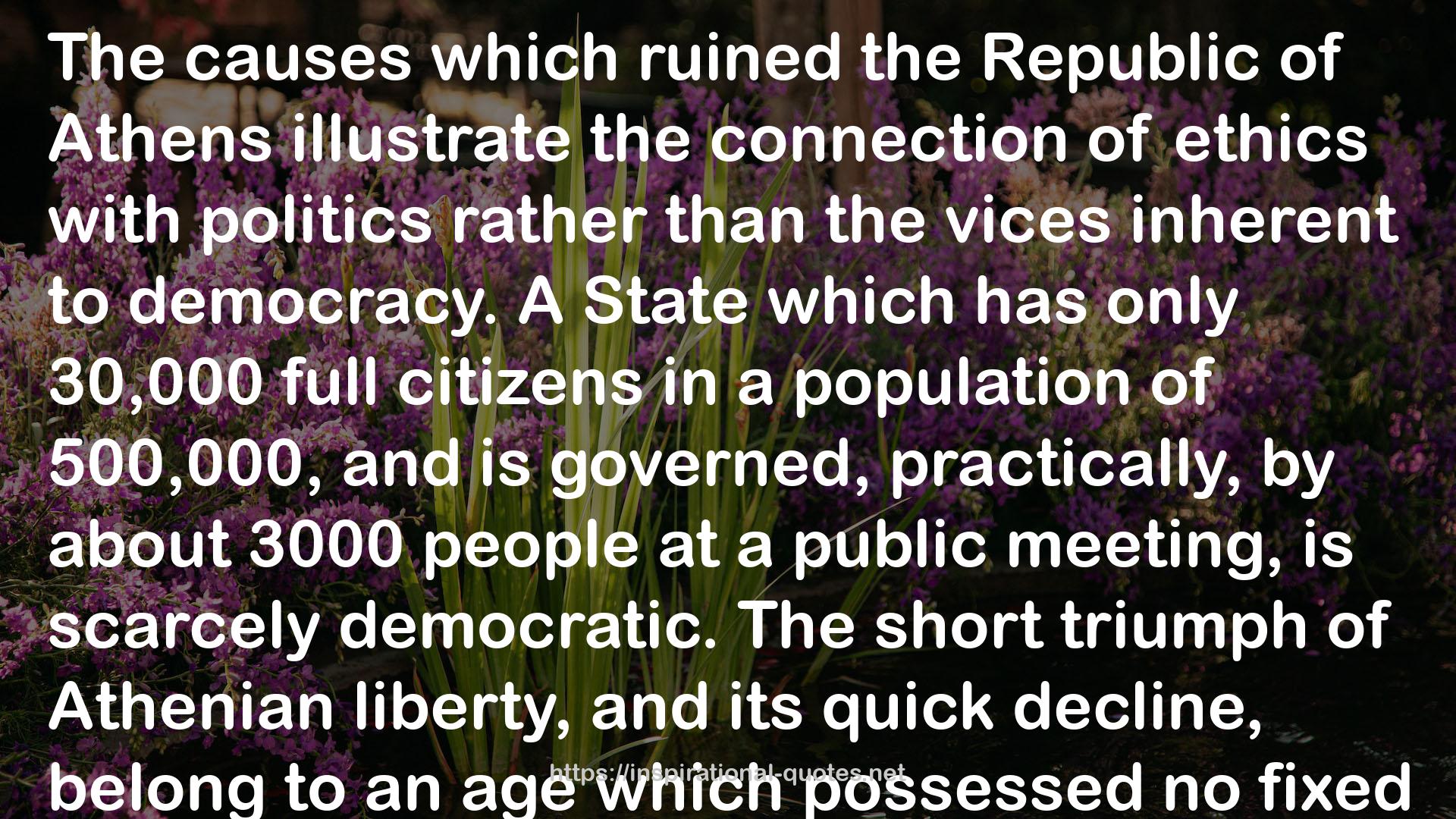" The causes which ruined the Republic of Athens illustrate the connection of ethics with politics rather than the vices inherent to democracy. A State which has only 30,000 full citizens in a population of 500,000, and is governed, practically, by about 3000 people at a public meeting, is scarcely democratic. The short triumph of Athenian liberty, and its quick decline, belong to an age which possessed no fixed standard of right and wrong. An unparalleled activity of intellect was shaking the credit of the gods, and the gods were the givers of the law. It was a very short step from the suspicion of Protagoras, that there were no gods, to the assertion of Critias that there is no sanction for laws. If nothing was certain in theology, there was no certainty in ethics and no moral obligation. The will of man, not the will of God, was the rule of life, and every man and body of men had the right to do what they had the means of doing. Tyranny was no wrong, and it was hypocrisy to deny oneself the enjoyment it affords. The doctrine of the Sophists gave no limits to power and no security to freedom; it inspired that cry of the Athenians, that they must not be hindered from doing what they pleased, and the speeches of men like Athenagoras and Euphemus, that the democracy may punish men who have done no wrong, and that nothing that is profitable is amiss. And Socrates perished by the reaction which they provoked. "
― John Emerich Edward Dalberg-Acton , The History of Freedom and Other Essays
